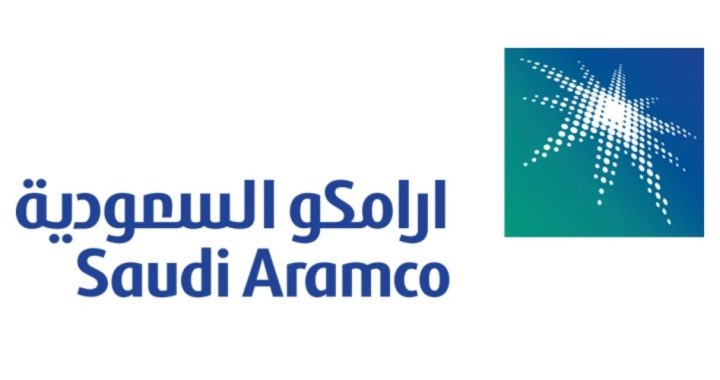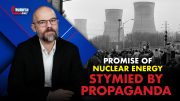
The “road show” designed to build investor interest and demand for shares of Saudi Aramco’s initial public offering (IPO) ends on Wednesday and the early results are disappointing, to say the very least.
Crown Prince Mohammed bin Salman (MBS) thought back in 2016 that he could sell a tiny piece of his country’s crown jewel, the Saudi Arabian Oil Company (Aramco) and raise $100 billion. He had big plans to invest those proceeds in diversifying his country’s economy away from its near total reliance upon oil revenues for its sustenance and for the maintenance of its welfare state.
Now, however, he’ll be lucky to get a quarter of that. And most of what he gets will come from pressure, threats, intimidation, and manipulation.
The New American has outlined the risks to those investors residing outside the Middle East, including:
• Aramco’s reserves aren’t as large as originally thought;
• Its profits are lower than expected;
• Its production facilities are vulnerable to terrorist attacks;
• It has manipulated the numbers on the company’s balance sheet to make it appear more attractive to investors than it really is;
• Fitch Ratings cut its credit rating following the murder of Washington Post journalist Jamal Khashoggi last October (under MBS’s watch);
• Most of those investing in the company are doing so out of threats and intimidation;
• International banking firms handling the offering are in it for the fees and not the best interests of investors;
• Those fees (legal, accounting, marketing, etc.) are huge;
• The funds that are raised are more likely to be used not to fund MBS’s grand Vision 2030 but to keep the country’s deficit from expanding even further;
• The offering will be placed on the tiny Saudi Stock Exchange (aka Tadawul), which boasts a miniscule 192 companies listed. This compares to the New York Stock Exchange where shares of more than 2,500 companies are traded daily;
• The decision to use Tadawul instead of the NYSE reflects MBS’ unwillingness to do a complete disclosure of the offering’s risks that would otherwise be required; and
• The future of oil prices is increasingly uncertain (due to tariffs, a slowing global economy, the rise of hybrid and electric vehicles, etc.), making any valuation of the company uncertain.
Investors seeking safety and yield in the energy industry are likely to obtain better results investing in the majors such as Exxon, Mobil, Valero, or Chevron, which have far fewer undisclosed risks, are much more transparent, and whose cash flows are more predictable.
The offering’s 600-page prospectus has revealed a few of those risks. First is the increasing likelihood that the funds won’t be invested in MBS’s grand scheme after all but instead would be subject to the whims, necessities, and changing “directions” of MBS and his government: “The government may direct the company to undertake projects or provide assistance for initiatives outside [of Aramco’s] core business, which may or may not be consistent with the company’s immediate commercial objectives or profit maximization.”
Got that? MBS is free to spend, invest, or divert any proceeds from the offering in any way he chooses, which may not be in the best interests of its new investors!
Second, the potential for future oil field attacks: “Terrorism and armed conflict may materially and adversely affect” the company’s operations. The September 14 attack took half of the company’s production temporarily off line, forcing the company to — ready? — import oil in order to feed its domestic refineries and, as the Wall Street Journal expressed it, “ensure it exported its own products [in order] to [satisfy its own] customers’ demands.”
Most of the so-called demand for shares of the company has been ginned up by threats by MBS to his Saudi “partners” that if they don’t invest heavily in Aramco he could reopen investigations into their corruption.
Just 10 percent of the bids for shares have so far come from non-Saudi investors, which leaves the door open for price manipulation. Said Gary Ross, CEO of Black Gold Investors, “Selling a small piece of Aramco in a captive market gives [the prince] more control to prop up the value of Aramco over its fair value.” Agreeing with Ross that the potential exists for price manipulation due to that “captive market,” Rory Fyfe, managing director at Mena Advisors, warned, “With domestic players being strong-armed into investing, international investors are … going to have to value this well below the expectations of [the crown prince].”
A few days after the “road show” ends, the company will then tell the investing world what the initial offering price will be when shares are finally offered to the public through its tiny and captive Tadawul stock exchange on December 11.
Expect those final numbers to be a great disappointment to the Crown Prince, as international institutional investors are staying away from the offering in droves, for good reasons.
An Ivy League graduate and former investment advisor, Bob is a regular contributor to The New American, writing primarily on economics and politics. He can be reached at [email protected].
Related articles:



